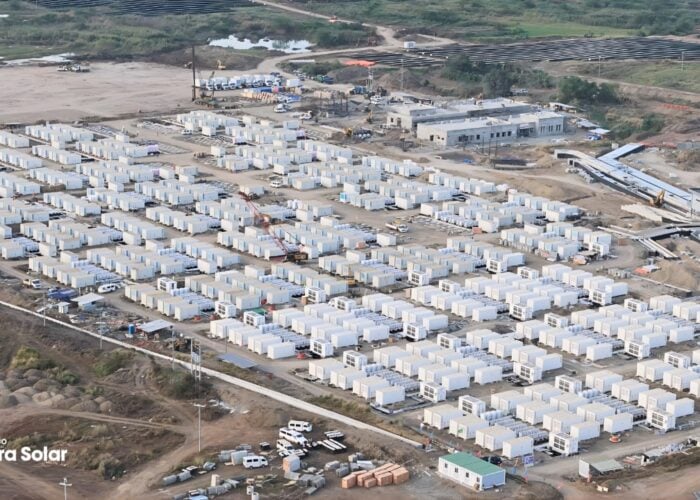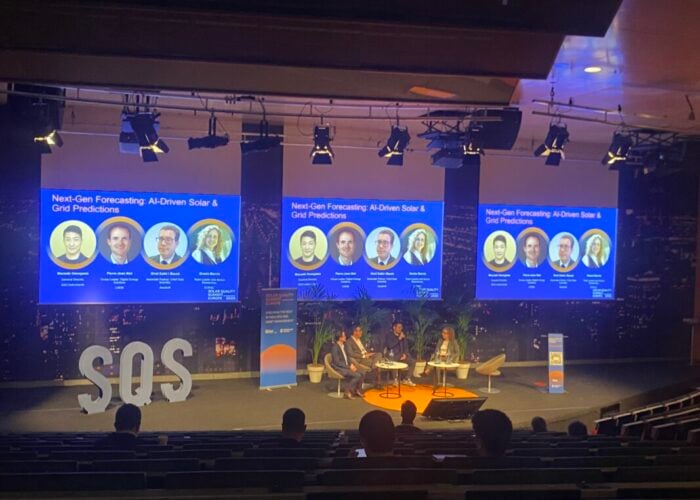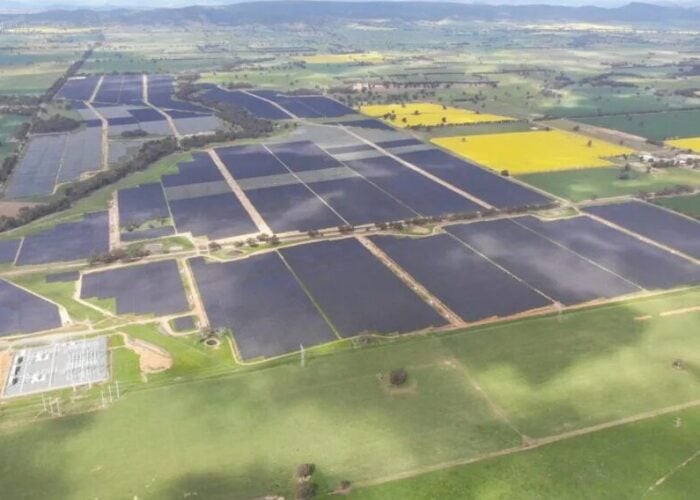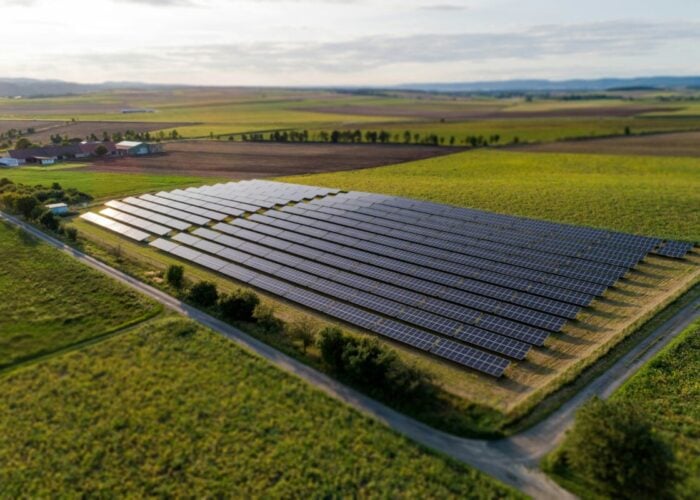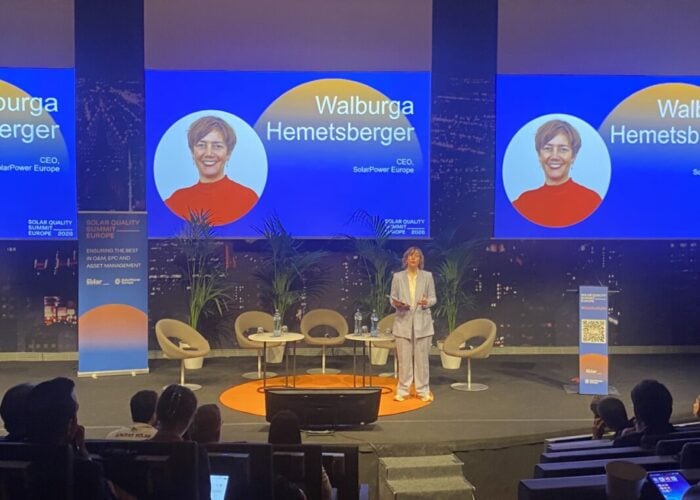
The humble power purchase agreement (PPA) has quickly become a “cornerstone” of the European renewable energy space. Figures from Swiss consultancy Pexapark show that Europe signed offtake deals for 15.8GW of renewable energy capacity in 2024, with capacity contracted more than doubling between November and December as buyers and sellers ended the year by completing a swathe of deals.
More recently, March saw 1.6GW of renewable energy capacity contracted in Europe, more than double the capacity contracted in February, and demonstrating sustained interest in completing offtake agreements on the continent. This week, many of these buyers and sellers came to London for Solar Media’s Renewables Procurement & Revenue Summit to discuss the dealmaking landscape, and how best PPAs can be used to help realise Europe’s clean energy goals.
Try Premium for just $1
- Full premium access for the first month at only $1
- Converts to an annual rate after 30 days unless cancelled
- Cancel anytime during the trial period
Premium Benefits
- Expert industry analysis and interviews
- Digital access to PV Tech Power journal
- Exclusive event discounts
Or get the full Premium subscription right away
Or continue reading this article for free
Discussions centred on the role of PPAs in meeting the power demand for data centres in particular and the challenges and opportunities in the corporate PPA space as companies from a range of backgrounds look to diversify their acquisitions of renewable power.
“We’ve gathered at a really pivotal moment for the renewables sector, both in the UK and across Europe,” said event chair and chief investment officer at Thrive Renewables Monika Paplaczyk, who opened the event on Wednesday. “PPAs have really moved from a checkbox in financing to a cornerstone of bankability.”
There was general agreement among attendees that the rapid growth in contracted PPA capacity, and interest in these kinds of offtake agreements, have helped the continent advance towards its clean energy goals, and help bring new players into the clean energy industry. However, many attendees suggested that these deals could benefit from new and more nuanced mechanical innovation, and use of tools such as AI to better understand and reach decisions in the industry.
Markets and maturation
The maturation of the renewable PPA space in Europe in general, and that of the solar sector in particular, has seen a number of striking deals signed in recent months. The largest solar-specific PPA of 2024 was a 350MW deal signed in France, contracted for 20 years, and the largest single deal of the last two years covered 869MW of capacity and was completed in 2023.
While the total volume of renewable energy capacity contracted in 2024 was slightly lower than in 2023, the fact that interest remains high in the sector, and the presence of new actors in the PPA space, shows that the PPA is still an effective offtake agreement for facilitating renewable energy trading.
“Three or four years ago we were nowhere in PPAs, we were just buying electricity from our suppliers in a very traditional manner,” Olivier de Nomazy, head of energy sourcing and market intelligence at data centre operator DATA4 told PV Tech Premium at the event. “The volatility of the prices has pushed us to reconsider our approach.
“We have very big demands – I think year-on-year our consumption has been growing by a 30% average between 2023 and 2024 – and we are also seeking more renewable electricity.”
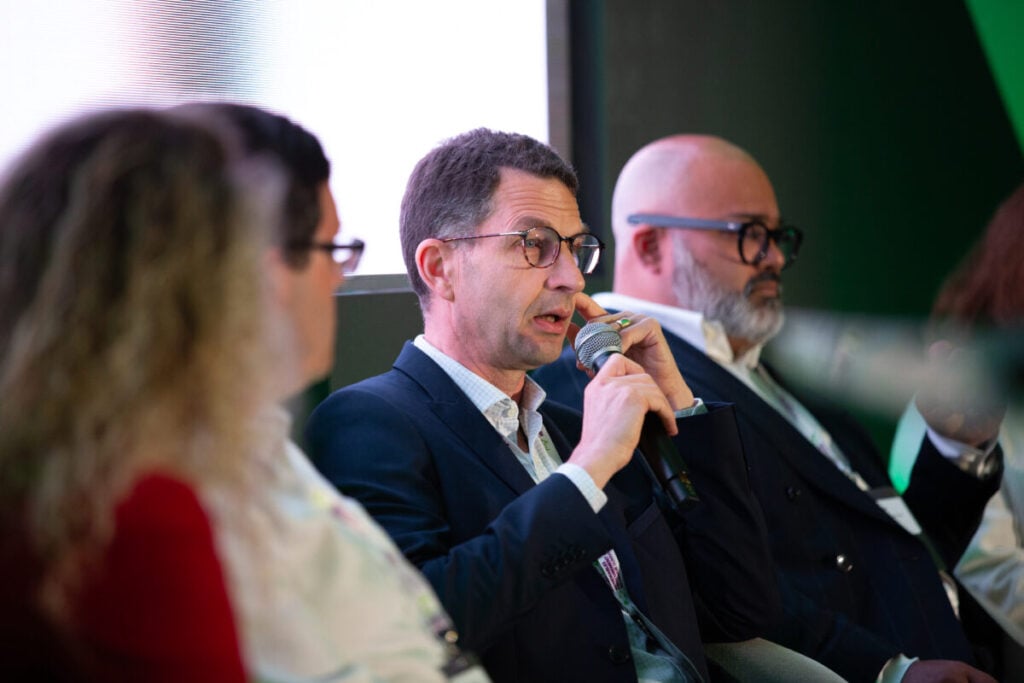
This combination of new entrants to the renewable energy sector, which have massive electricity demands and a desire to decarbonise, is perhaps best exemplified by the so-called ‘hyperscalers’, largely US-based technology giants that have sought new offtake agreements in other markets.
“The bulk of this activity globally is led by the hyperscalers, [such as] Amazon, Google and Meta,” Nayel Brihi, a corporate sustainability analyst at BloombergNEF, told PV Tech Premium.
The vast scale of the electricity demand of these companies has encouraged a new wave of PPA types, with the industry now dominated by a large number of deals for smaller capacities of power. Experts from Pexapark told PV Tech Premium of this trend at this year’s Intersolar Europe event in Munich, and when asked about those very trends, Brihi agreed that this has become an industry mainstay.
“We’re definitely seeing those trends in co-located and hybrid PPAs – more often than not it’s going to be solar-plus-storage or solar-plus-wind – and we see this growing trend particularly in the US,” said Brihi. “In Europe, the market is still very small – last we tracked at least 740MW of off-site hybrid deals of solar and wind – but it is growing.”
PPA limitations
However, PPAs remain a somewhat challenging space in which to sign deals, particularly considering the recent trend towards signing a larger number of individual deals. Throughout the event, speakers discussed the tensions between ‘standardised’ and ‘bespoke’ PPAs; the former consists of a generic template from which other deals can be designed to speed up the negotiation process, while the latter consists of deals created from scratch for each offtake agreement.
While chairing a panel on offtaker and producer motivation, Paplaczyk asked the audience which of these deal types they would prefer to sign; 64% of respondents replied that they would rather work from standardised PPA templates, rather than build individualised deals for each agreement, suggesting an appetite for faster and more streamlined negotiation processes among offtakers.
The trend towards smaller, more granular PPAs can also make signing deals harder, as offtakers’ demand can outpace producers’ supply of projects ready for offtake agreements.
“When you’re in a smaller market – for example in Germany – it’s really challenging to find a PPA that can ramp on a two- to three-year basis, or even look at small, short-term PPAs that will fill that gap,” said Helen Kinsman, SVP of commercial and regulatory affairs at VIRTUS Data Centres, who said at a panel discussion that a lack of availability of these kinds of deals could dissuade investment in the offtake space more generally.
“We’re not going to buy a huge PPA, we’re going to be hedging ourselves as we go,” Kinsman continued. “If our PPAs are too expensive, they just won’t come to us, they won’t take a view that that’s green and they’ll say it’s more expensive down the road.”
Signing a PPA also requires significant expertise on the energy mix, power price and offtake arrangements available for the market in which a project is located, regardless of whether a generic or more tailored approach is used. According to de Nomazy, this has created a significant learning curve for new entrants to the sector, which threatens to undermine a core benefit of PPAs, that they can generate investment in the renewable energy space from companies that would ordinarily not seek to back clean energy projects.
“There has been a learning curve, especially because personally I was neither in the energy sector nor in the procurement sector,” de Nomazy told PV Tech Premium, who added that there is further complexity in trying to work across national markets, which has affected DATA4’s approach to investment.
“PPAs are not as mature a market in one country as another. So far we’ve been signing all our PPAs in three countries – France, Italy and Spain – where there are some similarities,” he said. “There are some differences in the regulation from one country to another, and prices fluctuate and can be quite different; if we simply compare France to Italy, for example, France is massively exporting nuclear energy to its neighbours, while Italy is suffering from its dependencies on fossil fuels.
“All that does have an impact on long-term contracting and offtake design.”
New mechanisms and sophisticated data
Brihi was optimistic, however, that work has been done to add new mechanisms to PPAs to make them more suited for the rapidly-changing European clean energy sector.
“We’re seeing developers diversify portfolios so they can offer more structured solutions to corporate buyers,” Brihi told PV Tech Premium. “[This] is something we’re definitely seeing. In the UK, for example, we saw the first PPA that was blended with a Contract for Difference (CfD) [and] the EU wants to send out guidance on those PPAs blended with CfDs.”
While this deal, signed between Statkarft and Luminous Energy, included a relatively small capacity of power, 28.5MW, the combination of two forms of financing structure could help set a precedent for more creative investments. Similarly, Brihi said that Europe, in particular, has become a “very good market” for cross-border PPAs, with enough legislative and energy demand crossover between countries to facilitate deals spanning multiple countries.
“We’re seeing a lot of innovation and creativity, and that’s a theme of sophistication for the PPA market,” he added.
Speakers also suggested that hybrid PPAs – ones that cover multiple types of renewable energy generation technologies and storage systems – have become more popular, and that these diverse portfolios will help renewable energy deliver the kind of baseload power that will be essential to a comprehensive energy transition.
“Green electricity should be provided 24 hours a day; powering an asset that runs 24 hours a day with solar is a bit contradictory, so we are also looking at the electricity that runs 24 hours a day,” de Nomazy told PV Tech Premium. “In any of our efforts to subsidise or support production of electricity, we should be looking for more than just solar.”
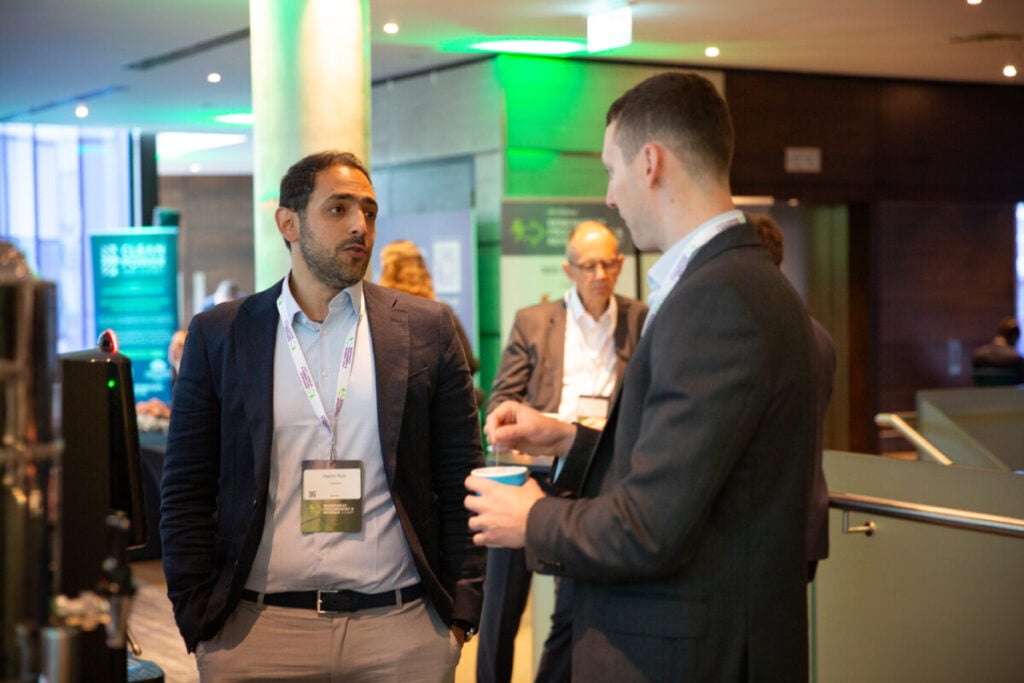
According to Karim Rizk, business development manager at AI-powered software as a service (SaaS) platform TokWise, these new mechanisms, and the increasingly complicated nature of many offtake agreements, should not dissuade companies from entering the offtake space. He told PV Tech Premium that the use of AI tools can help minimise the learning curve for new entrants to the sector, and help independent power producers (IPPs) make more informed decisions.
“Trading power is not an easy topic,” said Rizk. “There is a lot of expertise; trading houses have trading floors with a lot of screens and a lot of expertise, and these people have been in the business for 20, 25 years. Now, the technology is there to enable IPPs to make simple trading strategies.
“To be quite frank, we’ve seen our platform and our implementation – [suggesting] not to trade frequently – really get a lot of returns on investments, maybe a 5-10% increase on the margins per megawatt-hour.”
Many of the attendees described the Euroepan PPA space as “dynamic”, from recent trends in offtake structures to the growing breadth of technologies at work in the sector. Ultimately, this means that, according to Brihi, Europe could be set for yet more innovation in its PPA landscape.
“I don’t know what it’s going to look like in Europe, but we had a conversation about maybe seeing the first nuclear PPA in France,” he told PV Tech Premium. “[That] would be really exciting.”

